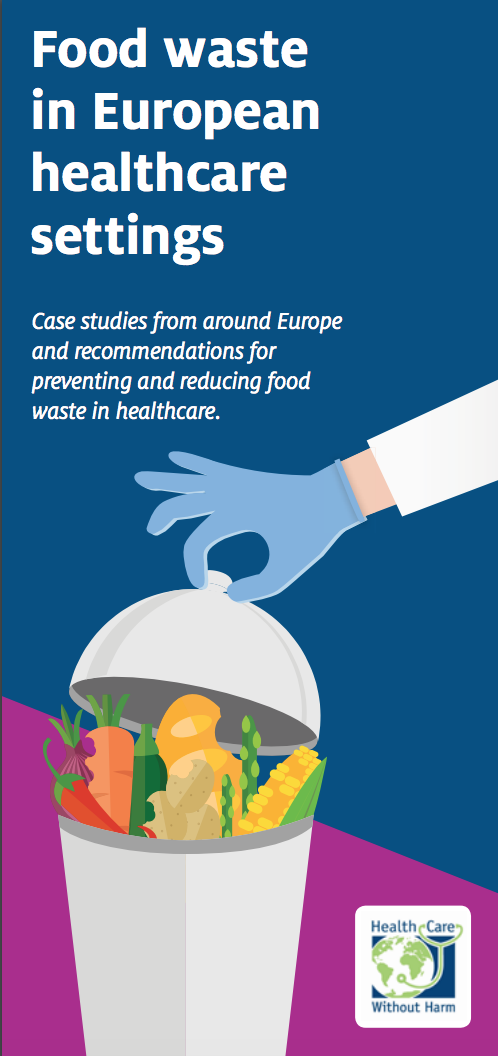Waste Framework Directive adopted - consequences for food waste in healthcare
After 26 technical meetings and 6 trialogues, with the last one taking place on Sunday 17th December and ending Monday 18th at 4.30am (after 18 hours of negotiations), an agreement was reached among the European Parliament, the Council and the European Commission on the revision of the Waste Framework Directive, the Landfill Directive, and the Packaging and Packaging Waste Directive, as well as other Directives that make up the "Circular Economy Package".
The initial proposal of the Circular Economy Package was adopted by the European Commission in December 2015 and, over the past two years of debates among the EU institutions, HCWH Europe has followed the revision of the Waste Framework Directive in relation to food waste.
The important provisions relating to food waste in the final text of the Waste Framework Directive are:
- It includes a definition of food waste, whereby it is defined as: “...any substance or product, whether processed, partially processed or unprocessed, intended to be, or reasonably expected to be ingested by humans...” (REGULATION (EC) No 178/2002), that has become waste.
- It outlines that a food waste methodology (by delegated act) is to be developed by 31st December 2019.
- A clause whereby food waste targets will be reviewed on 31st December 2023 is included.
- There is a reference in the recitals to UN Sustainable Development Goal (SDG) Target 12.3 (i.e. food waste should be reduced by 30% by 2025 and by 50% by 2030) as an indicative target on food waste.
This outcome is quite disappointing as, contrary to what HCWH Europe and other NGOs have campaigned for, food waste targets are mentioned in the recitals of the legislation as "indicative" – meaning that they are not compulsory for Member States and carry little weight in pushing Member States to reach these targets (which were already a voluntary measure by way of their inclusion in the SDGs).
In addition, the EU has delayed the possible setting up of official and compulsory food waste reduction targets until 2024, leaving just six years for SDG Target 12.3 to be achieved by 2030. This is disappointing, considering the EU had committed to take action on this back in September 2015.
As regards the setting up of a common methodology for reducing food waste, two more years are given to the Platform on Food Losses and Food Waste (FLW Platform, which was established by the European Commission in 2016) to finish their mandate to develop this methodology. This delay is surprising, given that there is an urgent need to provide guidance to Member States for collating data on food waste. This data is currently lacking, and this was given as the main reason for delaying the setting up of obligatory food reduction targets.
Furthermore, a food waste hierarchy did not make it to the final text, which means that the EU will rely on the general waste hierarchy, which does not capture nuances such as redistribution of food to charity, feed to livestock, and anaerobic digestion.
Finally, a vague food waste definition has been included, which means it will now be up to Member States to interpret it in their own way.
 All in all these measures will not create more incentives for the reduction of food waste in the healthcare sector - a sector with high levels of food waste (sometimes up to 65% of food served). Despite a continuing lack of regulation and financial support, some European hospitals and health systems continue to reduce food waste and implement excellent and innovative initiatives. Some of these are outlined in our Food waste in European healthcare settings publication from 2016.
All in all these measures will not create more incentives for the reduction of food waste in the healthcare sector - a sector with high levels of food waste (sometimes up to 65% of food served). Despite a continuing lack of regulation and financial support, some European hospitals and health systems continue to reduce food waste and implement excellent and innovative initiatives. Some of these are outlined in our Food waste in European healthcare settings publication from 2016.
HCWH Europe is a member of the FLW Platform and has recently joined the environmental UK NGO This is Rubbish – the leading organisation in an EU-wide movement for the reduction of food waste. A petition organised by the movement to have Europe’s food waste already has over 100,000 petition signatories and 67 supporting organisations from 20 EU countries.
The movement has today denounced the lack of action by the European institutions on reducing food waste with the adoption of the new Waste Framework Directive.
